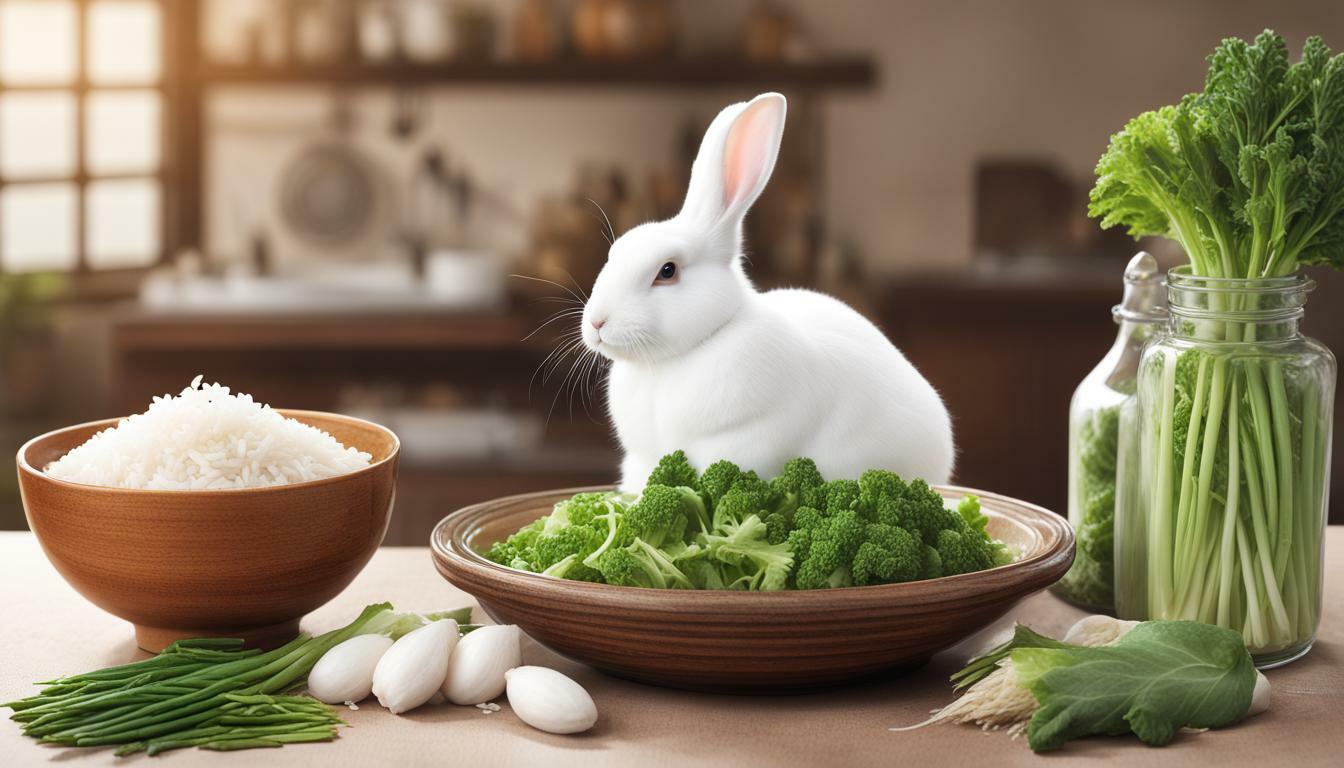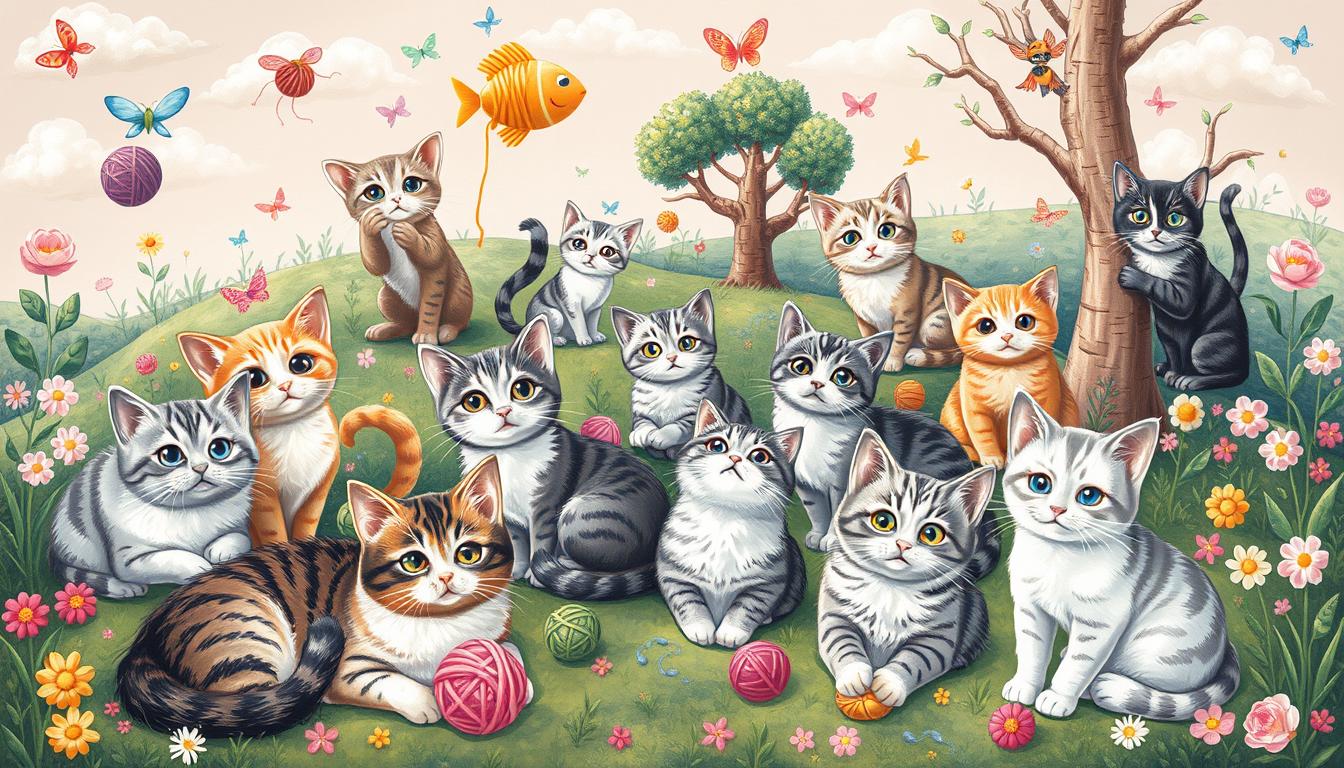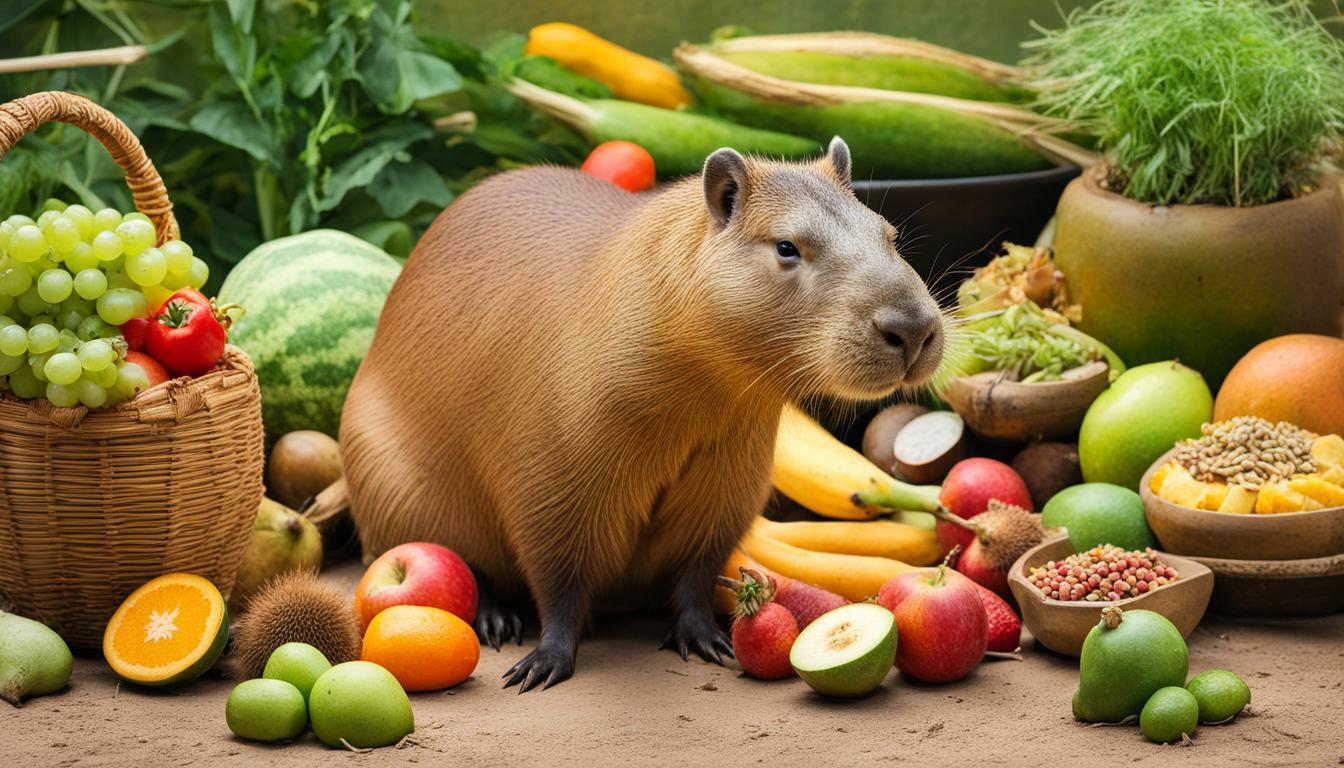Can Rabbits Eat Rice? Discover the Answer Here!

Table of content:
Rice is a popular carbohydrate and cereal grain that is a staple food for many people. However, rice may not be the best option when it comes to feeding our lagomorph friends. Rabbits have unique dietary requirements and digestive systems that make rice an unsuitable addition to their diet.
In this article, we’ll explore why rabbits can’t eat rice, the health risks it poses, and better alternatives to feed your bunny. After reading, you’ll know how to make informed choices regarding your rabbit’s diet and nutrition.
Why Can’t Rabbits Eat Rice?
Rice is high in calories and contains little fiber. Rabbits require a diet low in calories but high in fiber to aid their unique digestive system.
Rabbits are obligate herbivores, meaning they get all their nutrients from plant sources. As hindgut fermenters, they have a digestive system designed to break down the cellulose in grass and hay.
Rabbits produce two types of feces: hard fecal pellets and soft cecotropes. The cecotropes contain essential vitamins produced by the fermentation of fiber. Rabbits re-ingest these cecotropes to obtain the vitamins.
Rice lacks the indigestible fiber rabbits need to fuel their gut bacteria and produce these vitamins. Feeding rice can disrupt their delicate digestive balance.
Additionally, the simple carbohydrates in rice are quickly broken down into sugars. This can lead to gut dysbiosis, diarrhea, gas, obesity, and other issues if fed long-term.
In summary, rice does not provide the fiber or nutrients rabbits need in their diet. Their digestive system is not equipped to properly digest components like starch and sugars found in rice.
What Happens If a Rabbit Eats Rice?
Feeding a rabbit the occasional small portion of plain rice likely won’t cause immediate issues. However, regularly eating rice can lead to the following problems:
- Constipation – The lack of fiber in rice slows down digestion, often causing constipation.
- Diarrhea – Too much simple starch and sugars found in rice can upset the gut flora and cause diarrhea. Diarrhea leads to dehydration and electrolyte imbalances.
- Bloating and gas – The easily fermentable carbohydrates in rice can lead to gas and GI stasis. This is very dangerous and sometimes fatal for rabbits.
- Obesity – Rice is calorie-dense so overconsumption will quickly lead to obesity. Obese rabbits have higher risks of heart disease, arthritis, and liver problems.
- Intestinal blockages – The rice expands in the gut, increasing the risk of potentially fatal intestinal obstructions.
The bottom line is rice provides empty calories lacking proper nutrition for rabbits. The risks of digestive issues and obesity outweigh any benefits.
Is Rice Bad for Rabbits?
Yes, rice should be considered an inappropriate and unsafe food choice for pet rabbits, including cereals containing rice. Here’s why:
- Rabbits are herbivores designed to eat fibrous plants, not starchy grains.
- The simple sugars and lack of fiber in rice disrupt healthy gut flora.
- Rice provides none of the essential vitamins and minerals rabbits require.
- The calories lead to unnecessary weight gain and obesity.
- Rice promotes intestinal issues like constipation, diarrhea, gas, and blockages.
- There are no benefits of rice that can’t be obtained from healthier alternatives.
The bottom line is rice provides empty calories and carries risks of digestive problems and obesity. While the occasional spoonful causes no immediate harm, rice should not be a regular part of a balanced rabbit diet.
Healthier Alternatives to Rice
While rice is inappropriate for rabbit diets, there are many healthier carbohydrate options that are safer and provide proper nutrition:
- Hay – Grass, timothy, oat, or other hays. Hay should comprise 75% or more of an adult rabbit’s diet.
- Leafy greens – Dark lettuces, kale, parsley, cilantro, basil, arugula, spinach, broccoli leaves. Provide variety daily.
- Vegetables – Carrots, peppers, squash, celery, beets, radish tops. Give a few different veggies daily.
- Herbs – Dill, mint, basil, oregano. Great for adding flavor and variety.
- LIMIT fruits – Bananas, berries, apples, melons in very limited portions as treats. High in sugar.
- Oats/barley – Unprocessed oats or barley in limited amounts. Higher fiber than rice.
- Commercial pellets – Limit to 1/4 cup per day for a 5lb rabbit, grass-based no colorful bits.
- Clean water – Always provide unlimited fresh clean water.
Following a hay-based diet supplemented with vegetables, herbs, and limited fruits will provide the nutrition and fiber rabbits need without the risks of rice. Consult an exotic vet or rabbit-savvy resources for proper dietary guidelines.
Can Wild Rabbits Eat Rice?
No, wild rabbits should avoid rice for the same reasons as domestic rabbits.
Wild rabbits are herbivores evolutionarily adapted to eat grasses, leaves, bark, roots, and wild vegetables. Rice provides none of the nutrients they require. Additionally, accessing rice would be difficult for most wild rabbit populations.
While wild rabbits have a more varied diet and may opportunistically ingest some grains, rice should never be an intentional part of their diet. The gastrointestinal and obesity risks outweigh any potential benefits.
Overall rice has no nutritional value for wild rabbits. They have adapted to thrive on plants naturally found in their environments. Human foods like rice should be avoided to prevent disruption of their delicate digestive balance.
Key Takeaways: Can Rabbits Eat Rice?
To summarize key points:
- Rice is high in empty calories and sugars, low in essential fiber.
- The starch and lack of fiber in rice disrupts healthy rabbit digestion.
- Rice provides none of the vitamins and minerals a rabbit’s diet requires.
- Rice can lead to diarrhea, constipation, gas, obesity, and blockages.
- Healthier alternatives include grass hays, leafy greens, vegetables, herbs, and limited fruits.
- Both wild and domestic rabbits should avoid rice, as it poses major digestive risks.
While the occasional spoonful of plain rice won’t immediately harm a rabbit, it does not provide good nutrition. Rice should never be a regular part of a balanced rabbit diet. For their health and longevity, rabbits are better off eating a primarily hay-based diet with plenty of leafy greens and vegetables.
Final Thoughts
Rice is a starchy, carbohydrate-dense grain that makes up a large part of human diets. However, our rabbit companions have very different nutritional needs. The lack of fiber and excess calories in rice can wreak havoc on a rabbit’s sensitive digestive system.
While the occasional taste likely won’t cause lasting harm, rice should never be a regular part of your rabbit’s diet. There are far healthier alternatives that provide the nutrients and fiber rabbits require without risk of GI diseases. Maintaining a proper hay-based diet along with leafy greens, vegetables, and timothy pellets is the best way to keep your bunny happy and healthy.
When in doubt, skip the rice and reach for some delicious hay instead to keep your rabbit hopping along! Consult your vet for dietary recommendations tailored to your individual pet. With knowledge of your rabbit’s unique needs and digestion, you can help them thrive on an appropriate diet that steers clear of empty fillers like rice.
Welcome. I’m Adreena Shanum, the proud owner of this website, and I am incredibly passionate about animals, especially poultry. I founded adreenapets.com as a labor of love, stemming from my desire to share my knowledge and experiences with poultry enthusiasts worldwide.




